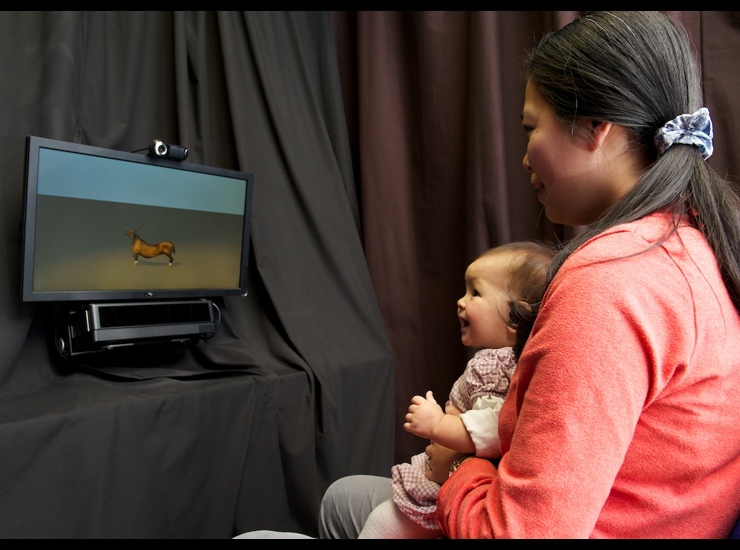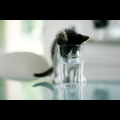
I have just completed a LuCiD summer internship at the Lancaster University Babylab, supervised by Dr Katie Twomey, Dr Katie Alcock, and Dr Rebecca Frost. During my 6-week summer internship, I took part in the ManyBabies research project.
Previous research from all over the world has found that young children prefer to listen to child directed speech rather than adult directed speech. This preference has been tested in a variety of ways, and the ManyBabies research group have set up a large international project to find out whether the way in which different labs conduct their experiments influence the results they obtain. Babylabs all around the world will be sharing their data on this preference with the ManyBabies researchers, who will compare the results and examine whether differences in the way in which the experiment is conducted, such as the paradigm, setting and location, affect the results.
Specifically, the ManyBabies experiment at Lancaster involved using two methods and two age groups to test whether young children prefer to listen to child directed speech rather than adult directed speech. The first method focused on 6 to 9-month olds, and in order to determine what type of speech preference they were expressing, we used a Tobii eyetracker to measure where the babies looked and for how long. The second method used the same stimuli as the first, but we used a preferential looking time method to decipher what type of speech 12 to 15-month-olds preferred. This involved the experimenter simply pressing a button when the baby looks at the screen, recording the duration of the looking. Analysis of these two methods will give two insights; whether age affects the preference for the type of speech, and whether paradigm affects the results illustrated.
Additionally, a participant in each method was filmed to document the procedure used, and the ManyBabies researchers will use these video clips alongside the data to determine whether there is anything done in our Babylab that is different to what researchers do in other Babylabs, and if so how this difference affects the data. When the ManyBabies project is finished, it should tell us more about replicating infancy research. Perhaps it will result in more standardised lab procedures, or alternatively it could demonstrate that the way in which the experiment is carried out makes no difference to the data.
This internship was an invaluable opportunity and gave me many new experiences, such as attending my first conference and gaining experience of testing multiple age groups in different paradigms. This greatly improved my knowledge and skills in carrying out infancy research. Furthermore, I have gained insight into what life is like as a PhD student and researcher, giving me a great deal of food for thought for my future plans. I have really enjoyed my time as an intern and would highly recommend it!

